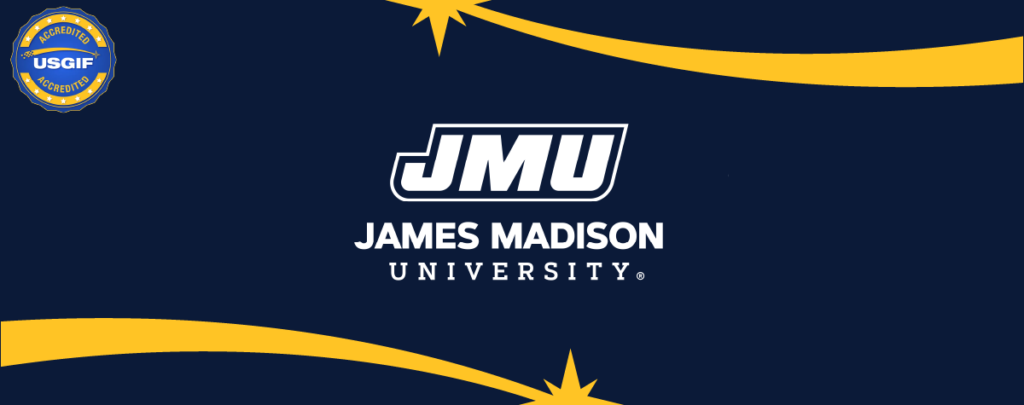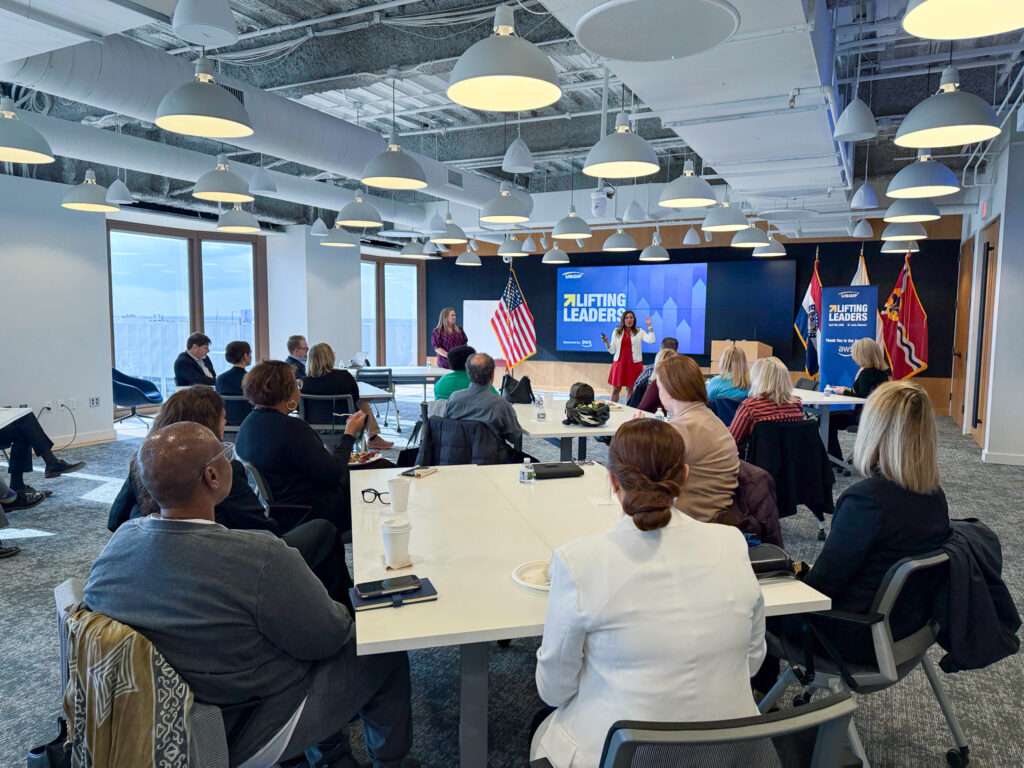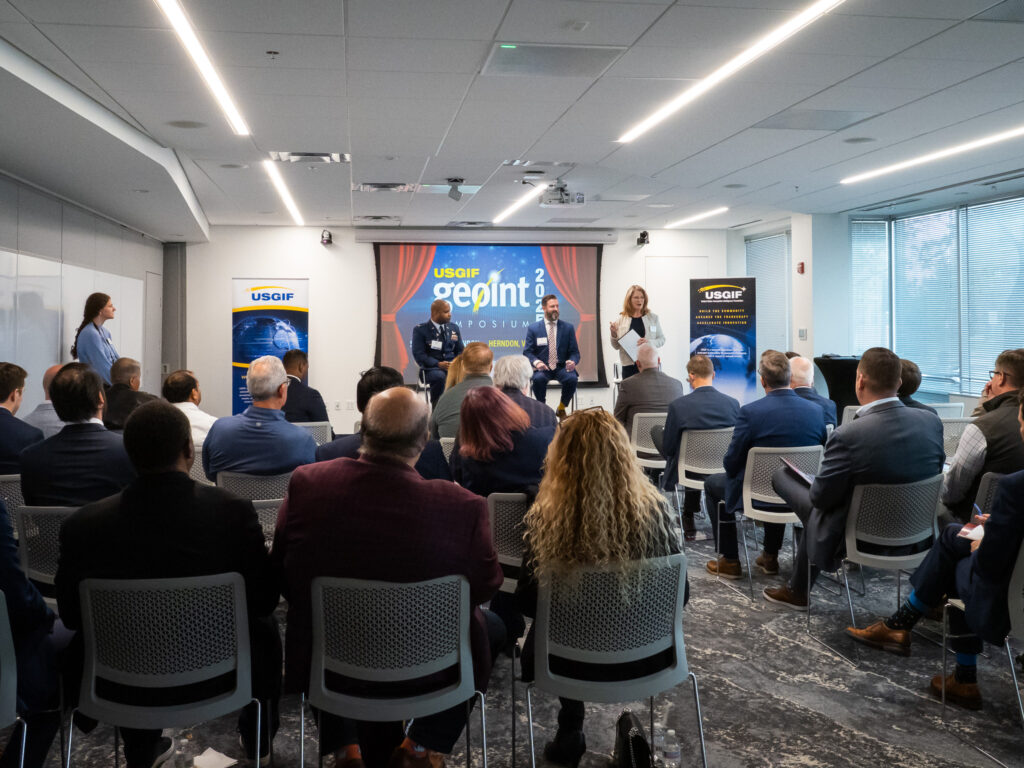Post-Pandemic Pivot
From remote-work options to career development initiatives to family-friendly cultures: GEOINT companies have enacted seismic shifts in their approaches to their people—and it’s the youngest generation of IC professionals who stand to benefit the most.
It’s a well-known fact: The workforce has seen dozens of changes since the spring 2020 arrival of COVID-19. However, seats to the “Career Transformation Post-Pandemic” YPG Hub event were filled with interns and new-hires, many of them freshly out of college and familiar with no other way than the digital, remote-based environment established by the pandemic’s safety-first protocols. For this demographic, it’s not as much about pivoting as it is taking note of the ways employers are pivoting—and how they might best take advantage.
Jo Ellen Adkins spent quarantine executing telework agreements, remote-telework agreements, and moving countless training, logistical, and communications systems from the classified, in-office, “high-side” to the declassified, digital, “low-side.” “Within a few years we were able to put more than 70% of our training on the low-side,” said the deputy director of human development at the National Geospatial-Intelligence Agency (NGA). “It wasn’t easy, but we did it.”
What’s notable about NGA’s changes is that it intends to keep many of them permanently in place. “We still have individuals at NGA who are teleworking,” said Adkins. “We still have childcare and are also allowing parents to stay home—that’s going to continue through September and maybe beyond. NGA is acutely aware that we are competing for all of you. What’s going to bring people in? Making sure these people-programs continue regardless of whether there’s a COVID or non-COVID environment.”
Apparently, the companies where Adkins’ fellow panelists work have similar plans. “When the pandemic hit, 20% to 30% of our workforce was able to work remotely, and many of them don’t want to come back,” said Titus Jeffries, Vice President and Division Manager at Leidos. “So we’ve been able to ask them, do you want to come back to the office full time? Do you want to do a hybrid approach? Or do you want to do 100% work-from-home. I think that flexibility has empowered a generation of the workforce to be able to adapt work to their families and lifestyle.”
That said, Jeffries cautioned his young audience against certain pitfalls to working remotely. “Twenty years ago, it was all about the hard skills—no emotional intelligence, no collaboration,” he said. “That whole script has changed. Today soft skills supersede hard skills. You have to be able to communicate in ways besides text.”
This new era of people-focused employment translates to career development, too, with companies taking deliberate strides toward guiding employees along their desired professional paths. “We’re spending more time with folks from a career journey standpoint,” said Jeffries. “Where do you want to go next? Trying to pull out what a person really wants long-term, and then helping them get there through mentorships, advocates, coaches, and training.”
That doesn’t assume sticking with one company, either. John Schieltz loves the analogy of a two-way door. “A one-way door I compare to a back-exit at the mall—you take the wrong door out, and there’s no way to get back in,” said Schieltz, executive programs lead, national security at Amazon Web Services (AWS). “But a two-way door is something you can go in and out of. Today’s careers are closer to that.”
Only the most prepared professionals stand to benefit from this cultural shift. “You’re the CEO of your career,” said Jeffries. “Don’t expect anyone else out there to drive your career. Find out what you like and what you’re good at; do the self-development.”
Schieltz offered up one particularly meaty take-away relating to interview preparation. “Identify the crown jewels of your career, itemize them, and put them in some type of model (I like the ‘CAR’ model of context/actions/results),” he said. “Save it to the cloud, and now you have this portfolio of career-success vignettes that you can bend and tailor to any question you get.”
Related Articles
Reaccreditation: James Madison University
James Madison University (JMU) has achieved reaccreditation of its Geospatial Intelligence (GEOINT) Certificate Program by the United States Geospatial Intellig…
Lifting Leaders: April 09, 2025
Lifting Leaders: Building Confident and Adaptive GEOINT Leadership On April 9, USGIF proudly hosted Lifting Leaders, a dynamic leadership development workshop…
Sneak Peeks 2025 – Herndon, VA and St. Louis, MO
2025 GEOINT Symposium Sneak Peeks Offer Previews of What’s Ahead In the lead-up to the 2025 GEOINT Symposium, USGIF hosted two powerful Sneak Peek events, on…




